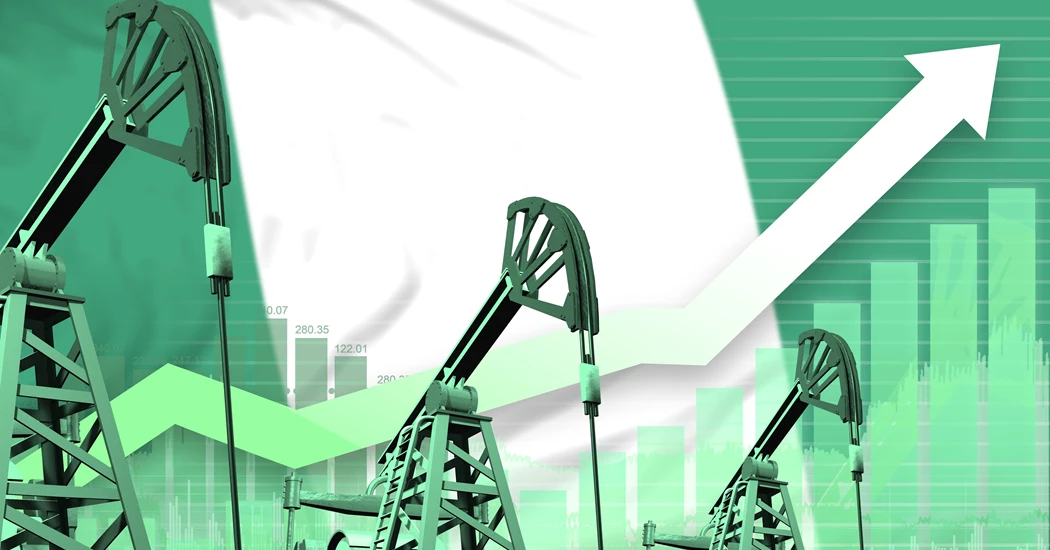Nigeria’s new president tackles old economic problems with bold reforms
Nigeria’s President Bola Tinubu, under a month of assuming office, has moved quickly with a raft of reforms as the new administration in Africa’s biggest economy seeks to boost confidence among domestic and international investors.
On his first day in office, Tinubu announced he was getting rid of a fuel subsidy that cost the state US$10 billion a year. “Fuel subsidy is gone,” he declared during his swearing-in on May 29th in the Nigerian capital, Abuja.
In the days ahead, Tinubu dismissed the nation’s controversial central bank governor widely blamed for a multiple exchange rate regime that hobbled the economy, allowed the national currency naira to trade more freely in the forex market, and signed a law aimed at fixing Nigeria’s epileptic power supply industry.
While the president is yet to appoint his cabinet ministers, Tinubu appears to have hit the ground running, working with his chief of staff, advisers, an interim central bank chief and an informal team of trusted confidants to tackle tough and long-standing economic issues.
What are the implications for Nigeria’s energy sector?
Scrapping fuel subsidy to unlock funds for investments
Nigeria has spent a fortune subsidising petrol since the 1970s, keeping petrol prices cheap for decades in Africa’s largest oil producing nation. It was supposed to be a temporary measure, but it became increasingly expensive as subsidy payments widened budget deficits and drove up government debt.
Moribund refineries, operating below capacity, also forced the country to rely on fuel imports, which it had to subsidise to keep prices low.
Scrapping the fuel subsidy was among the top reforms that Tinubu promised during his election campaign for presidency. President Tinubu delivered on the promise on assumption of office.
As a result, petrol prices have nearly tripled in Nigeria, triggering a spike in transport costs. It has also affected small businesses and homes who depend on petrol generators for power due to erratic supply from the grid. The subsidy removal angered labour unions who suspended an indefinite strike after talks with the government.
Nigeria’s new president admits his decision to remove the popular petrol subsidy would impose an extra burden on the masses, but he is betting on the removal to free up funds for education, regular power supply, transport infrastructure and healthcare.
Creating opportunities for improved power supply
In June, Tinubu also signed the Electricity Act of 2023 into law, a new legislation that decentralises the decision-making process around how electricity is generated, distributed and regulated.
The reforms allow the 36 state governments in Africa’s most populous nation to license and regulate electricity markets within their regions. Nigerian President Bola Tinubu signed the law two weeks after assuming office. Before then, matters on grid electricity supply were handled exclusively by the federal administration.
Nigeria has more than 16 000 megawatts (MW) of installed electricity-generation capacity, but less than 5 000 megawatts is transmitted to the grid daily, caused in part by aging transmission infrastructure. Tariffs that don’t reflect market prices have also discouraged investments.
To secure power, most Nigerian households and industries use expensive and polluting generators, whose combined capacity is estimated anywhere between 45 000 MW and 100 000 MW.
The new electricity act is expected to create opportunities for innovation, competition, and investments in the power sector, boosting electricity supply for consumers.
Bolstering oil production for growth and development
Bola Tinubu‘s administration intends to ramp oil production, citing a target of 4 million barrels per day from an average 1.4 million bpd, as it seeks to boost investments in the oil and gas sector.
To make that a reality, the president’s team is pushing for major changes that would reduce the role of NNPC Ltd, the state oil firm, which was acquiring more assets under former president Buhari.
The changes, if implemented, would make the Nigerian National Petroleum Co. (NNPC) become a minority shareholder in projects it controls, including oil blocks and refineries. The changes also include stripping NNPC of any policy-making role for the energy sector. With these changes, the government hopes to raise billions of dollars and boost crude output, which fell to multi-decade lows last year.
As part of efforts to encourage investments in the oil sector, the president has already met with international oil companies present in Nigeria. ExxonMobil executives, including the group’s upstream president Liam Mallon, were amongst the first investors Tinubu met upon taking office in June.
Partnering for growth and investments
On June 18, the U.S Department of State Bureau of Energy Resources (ENR) Assistant Secretary Geoffrey R. Pyatt traveled to Abuja to hold bilateral meetings with Nigerian government officials. His schedule also included a roundtable with energy companies from the American Business Council.
President Tinubu is also traveling for business. In June, Tinubu arrived in France for the Summit on New Global Financing Pact, his first international summit as Nigeria’s president.
At the Summit, President Tinubu said ongoing reforms will be sustained for a more competitive economy that attracts foreign direct investments. While there, he called on investors to take advantage of opportunities in Nigeria.
“We must stimulate recovery for the growth and prosperity of our people, which will not be far away,” President Tinubu told delegates at the Summit in Paris. “Nigeria is ready for global business and our reform is total.”
Click here to register and attend NOG Energy Week 2023, which runs from 9th - 13th of July at the International Conference Centre (ICC), Abuja.





